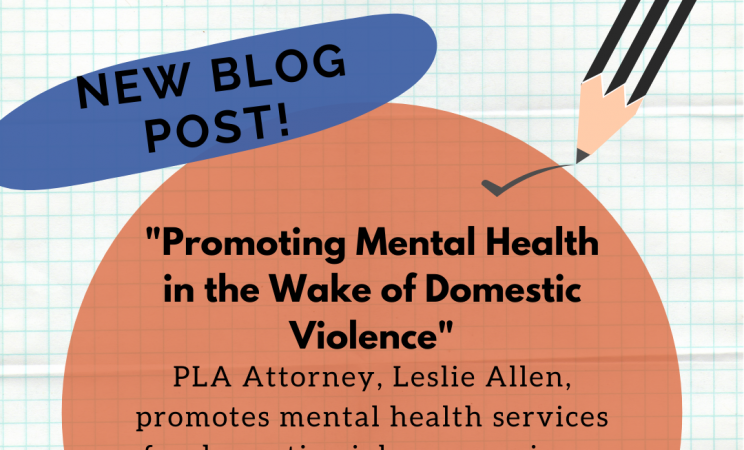Promoting mental health in the wake of domestic violence

The end of Mental Health Awareness Month is upon us and I want to use it as an opportunity to promote mental health services for domestic violence survivors.
Survivors and mental health care
Anxiety, fearfulness, and sadness are normal feelings surrounding domestic violence. Having these negative feelings does not automatically indicate a mental illness, but the effects of trauma can produce lasting changes to a person’s memory, arousal, and emotional and cognitive response to the external world. For many survivors, realizing that these symptoms are predictable, temporary, and treatable results of surviving violence begins healing.
Survivors should look for therapists, counseling groups, and mental health services that are trauma informed and have expertise in addressing the long-terms effects of interfamily violence. Therapy, counseling, and support groups for domestic violence survivors should be thought of as a part of our mental wellbeing toolkit and not limited for those who are suffering long term effects, such as PTSD and depression. Children who have been impacted by violence in the home can also benefit from talking to trauma informed professionals.
The Relationship Between Mental Illness and Domestic Violence
While not all survivors have a mental illness prior to or after experiencing domestic violence, people who have preexisting mental health conditions are more at risk of being abused. According to the Treatment Advocacy Center, in their systematic review of published academic papers examining this topic, “[r]ates of victimization among severely mentally ill persons were 2.3–140.4 times higher than in the general population.” Women who have a mental illness are even more likely to experience some form of victimization, especially domestic and sexual violence.”
While it’s impossible to reduce this complicated trend to one or two reasons, survivors may often be targeted because tools of abusers are easier and more effective on them, such as isolation, gaslighting, coercive controls, and blackmail. For people who have mental illnesses who have also experienced domestic violence, creating a team of clinicians including trauma informed caseworkers, psychologists, and psychiatrists who can address the multi-faceted concerns can be highly effective.
Seeking mental health services and your family law case
Often, survivors who are involved in family law litigations have reservations about pursing mental health services. In some cases, the abusive party may have threatened that they would use their mental health struggles against them to discredit their testimony or to get an upper hand in child custody. Most judges in the family court system have years of experience with these issues, and may view accessing treatment as a positive sign, particularly if there is demonstrated history of compliance and success. However, as each case is very fact specific, we strongly recommend seeking legal advice as early in litigation as possible. If you are wrestling with how to present your mental health status in family court litigation, please call our family law hotline at
(215) 981-2838 Monday-Thursday, 9:30 AM -12:30 PM or apply online. As a reminder, any information you disclose to an advocate at PLA is confidential.
Philadelphia trauma informed therapy resources for survivors:
Anti-Violence Partnership of Philadelphia (215) 567-6776
Congreso de Latinos Unidos (267) 968-1813
Lutheran Settlement House (215) 426-8610 ext. 1236
Women In Transition (215) 751-1111
WOAR Philadelphia Center Against Sexual Violence (215) 985-3315

